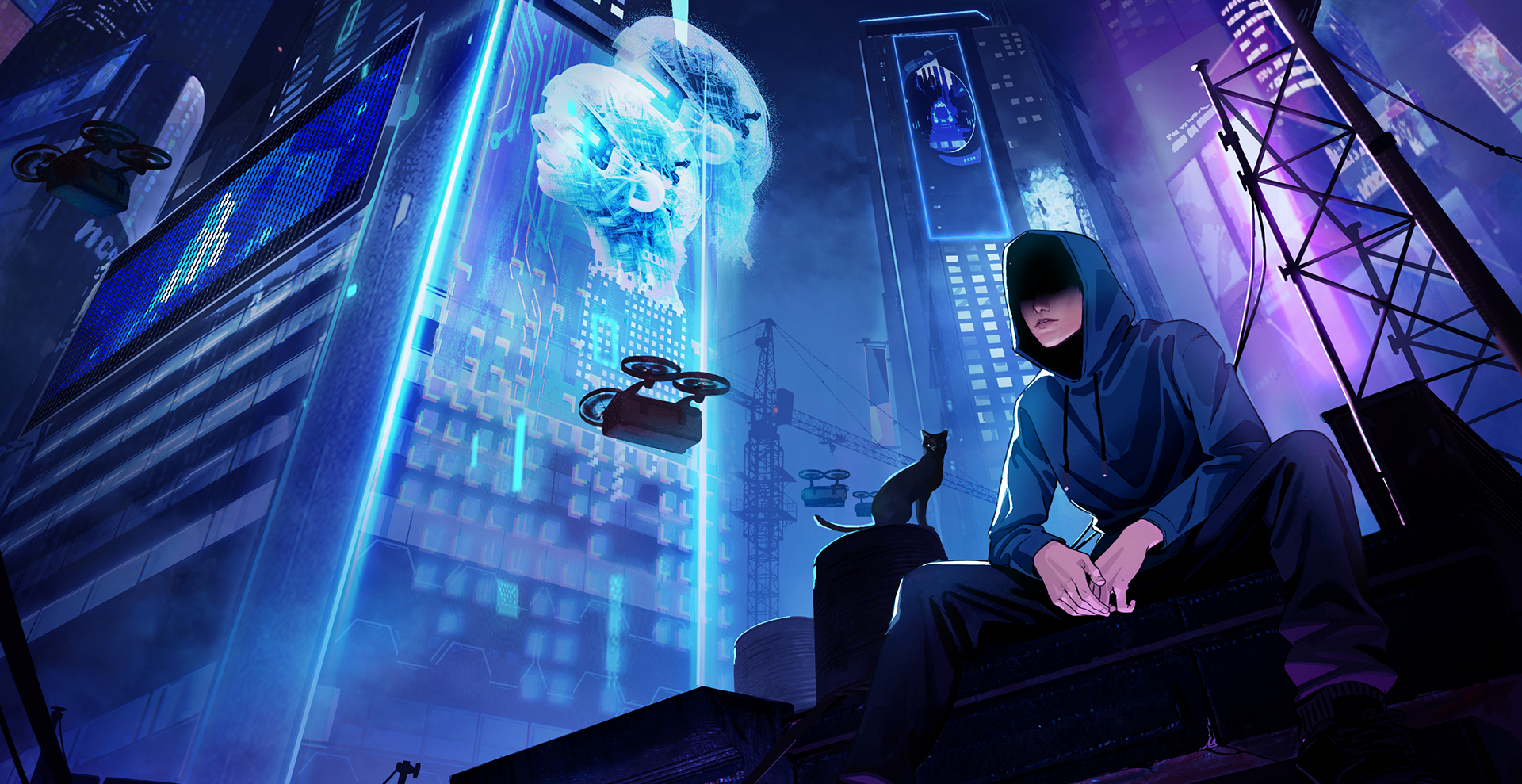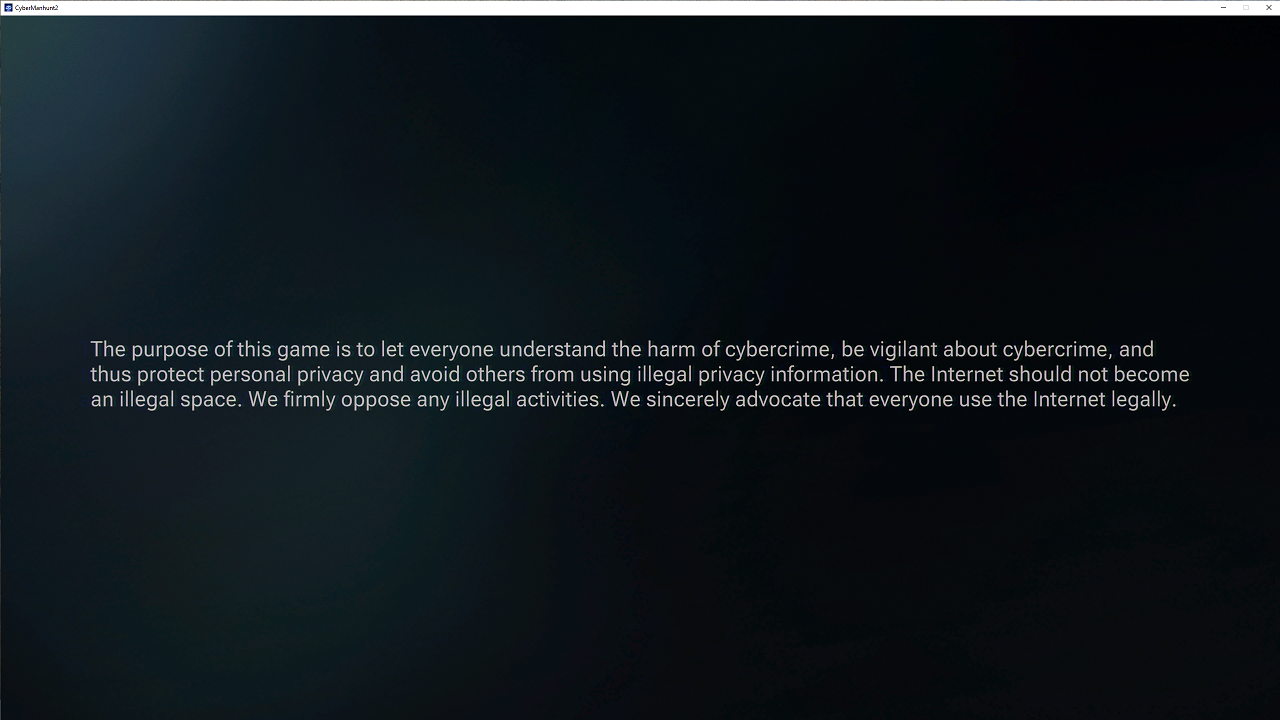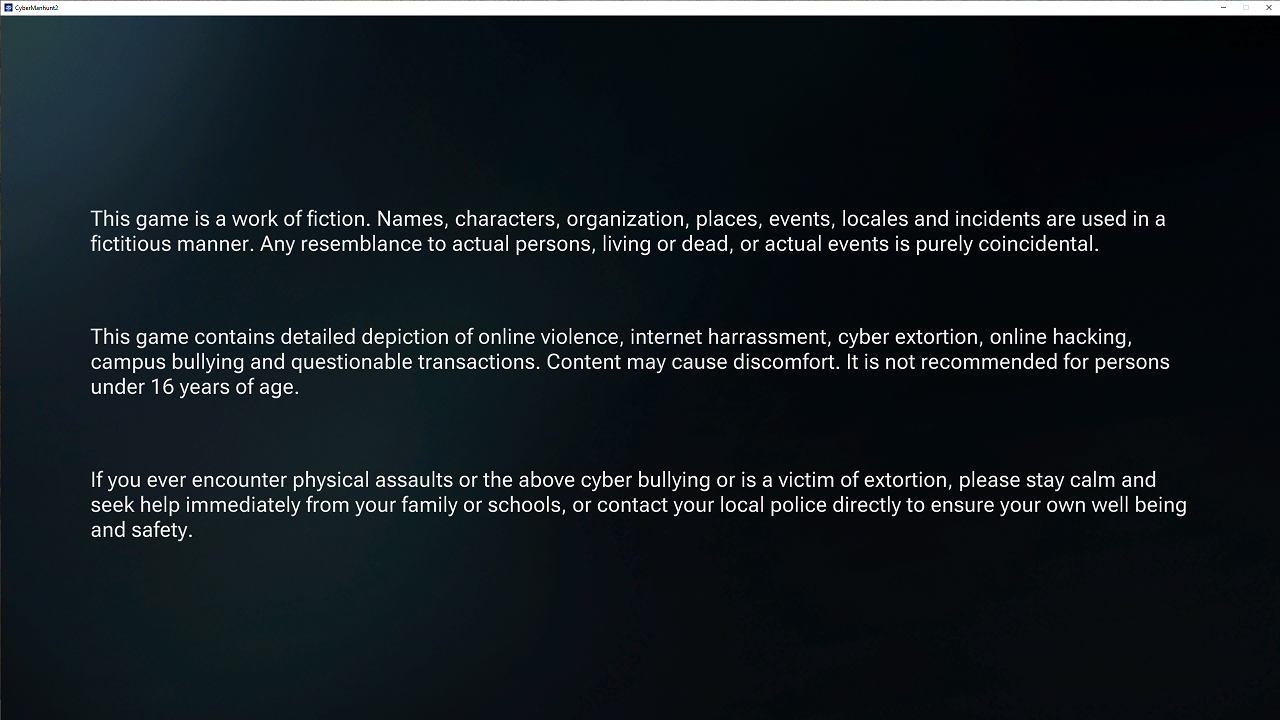Cyber Manhunt 2 Offers Sanitized Versions of Real-World Terrors
The world is dark and full of social media

Phone Hacking. Phishing. Social engineering. Cyber-bullying. Human trafficking. Loan scams. Fake jobs that lead to slavery at the hands of criminal gangs. Corporations bent on world domination working nefarious machinations. These are the boogeymen of our times, splashed across real-life news shows and headlines as proof that social media and the digital age are leading civilization on a path to ruin.
Developer Aluba Studio agrees, and built Cyber Manhunt 2: New World as a warning against these dangers and many more. The title screens spell it out plainly, preparing you for the content to come and how the studio feels about it in no uncertain terms. The story is done well enough, even with the barely-veiled real-world references and occasional heavy-handed messaging. You'll read about a lot of horrible people and the things they do while empathizing with their victims, and you do feel like you're piecing together the clues of a mystery. There's never quite the sense of any real stakes, however, or that the activities you undertake in the name of getting justice could be dangerous or destructive to people's lives. I was also left wondering how the developer feels about AI, though it is clear that the game is more concerned with making a statement about the acts of people and the technology that is becoming enabled by AI than it is with Artificial Intelligence itself.


Warning, danger ahead. Source: Author.
Cyber Manhunt 2: New World (CMH2), a sequel to 2021's Cyber Manhunt, puts you in the digital shoes of the AI assistant to an executive at Titan Matrix, a monolithic tech company working on AI, specifically a chat program called Talk-GPT (see what I mean by barely veiled?). The game starts off with a bang, quite literally, as a former Titan employee shows up at headquarters threatening to detonate the bomb he has strapped to himself. The first case revolves around discovering why the sad young man has gone to these lengths, and the other two loosely follow threads that emerge from the first. Though I didn't experience the final two cases, I'd imagine they all wrap up in the end to make a cohesive plot, though what is here works well enough on its own.
The meat of the game is what you do to solve these cases, sussing out clues from various sources and with various mini-games. The bulk of your time will be spent in ToothBook and HiTalk, the game's main social media platforms. Because CMH2 is a modern version of the venerable adventure game, you're going to spend a lot of time doing the modern version of pixel-hunting. Back in those heady days when the adventure genre was king and pixelated graphics were the height of visual technology, the solution to many puzzles was often a single pixel among an entire screen of pixels. You had to land your mouse in exactly the right spot or you could spend hours hunting across the landscape looking for the answer to the puzzle. So it is here after a fashion, where you have to drag your mouse over every line of text you come across, looking for a line or passage to turn red, allowing you to collect it as a clue. The only trouble with that are the occasions when the clue is only a single word, which makes it incredibly easy to miss and stops your progress dead in its tracks.

Once you collect enough clues to identify a person, you'll throw their details into the Database tool, then use the treasure trove of data to crack their password for email and HiTalk. As you gather clues from those sources, a few different mini-games will open up depending on the scenario. You might hack a person's phone with a phishing link, giving you a few minutes to look around and gather clues from the files and apps which will allow you to push forward your investigation. Other times you might be required to break through a firewall, which requires you to find your way through a maze by typing various network commands, which might sound dull though I found it to be one of the better activities on offer. Later in the game, you'll use traffic cameras to follow a fleeing suspect through the city, and even try to manipulate public opinions by burying stories that don't fit the narrative you want to tell.
I won't cover every mini-game and activity here, but the game does a mostly admirable job of keeping things fresh, mixing in various new ideas and mechanics to the tried and true stuff I've just described. Still, about 50% of your time will be spent on two or three activities, so you better enjoy them. Aluba does just enough here to keep you interested, wanting to push ahead and find the rest of the clues. Once you have them all, you partake in another mini-game of sorts, the Inference section, where you'll try to piece together the clues and come up with the correct narrative to concoct the explanation of the case. These are just trial and error with no discernable fail state, so there's not much meat on the bone, but they serve to move things along and you'll get a nice video wrapping up the story of that particular case when you get everything right.

And back to the story we shall go. As I said in the intro, it never feels like there's a lot on the line here. You'll read about some heinous stuff, with people being bullied, scammed, and murdered. In one instance you'll have to see and hear a person being beaten to death, perhaps the most affecting bit of nastiness in the game. But I could never escape the feeling that I was watching and doing all this through a veil of artificiality, as if it was happening to or being done by someone else. That's the inherent problem with the medium, but many games have succeeded in making your actions feel real, and I just didn't get that same sense here. It feels very sanitized, very detached from what the studio warns you about at the start of the game.
I enjoyed my time with the game, a few frustrating bits aside. In the end, I walked away thinking about how real these problems are in the actual world, so perhaps the developer accomplished its mission after all. I plan to go back for the final two cases and the story's denouement at a later date as well. Now if you'll excuse me, I'm going to change all my passwords and delete my social media accounts.
